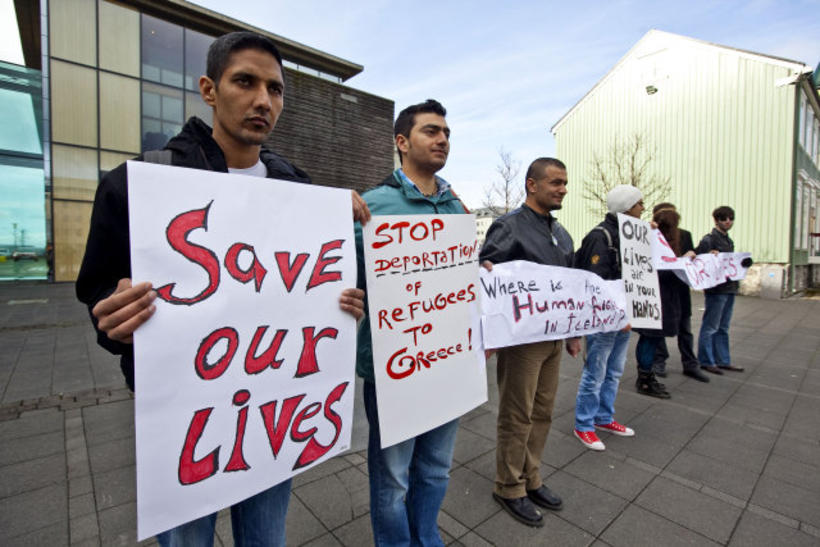Asylum procedures in the spotlight
A comprehensive review of current legislation governing foreigners in Iceland is planned to be completed by the autumn. The review is being conducted by a cross-party parliamentary committee.
Act No 96/2002, known as the Foreigners Act, is the main piece of legislation governing foreigners entering and staying in Iceland. The various sections of the Act deal with issues such as: arrival and departure, stay and residence, denial of entry and expulsion, special provisions for EEA and EFTA nationals, and refugees and protection from persecution.
Constant review and change
Since the Foreigners Act entered into force in its modern form on 1 January 2003, it has been amended eleven times.
Some controversial points
Act No 96/2002
- Article 29: "If a foreign national refuses to reveal his identity, or there is reason to suspect that the foreign national has given false information concerning his identity [...], he may be arrested and remanded in custody [...]. [...] When deciding whether to grant a residence permit, the Directorate of Immigration may require the applicant [...] or his relatives to undergo an DNA test and to give a biosample for that purpose [...]."
With its amendments in 2004, the government at the time sought to prevent individuals from obtaining a residence permit in Iceland by means of marriages of convenience or forced marriages. Critics considered these proposals to be an attack on marriages between Icelanders and foreigners. There was also opposition to another amendment, whereby individuals not providing satisfactory proof of their immediate relationship to an existing resident of Iceland may be made to undergo DNA testing before their residence application is approved (Article 29). A major review of the Act in 2008 introduced new provisions addressing issues such as residence permits for the purposes of academic study and the rights of foreigners whose relationship has broken down as a result of violence or abuse.
Asylum procedures sensitive
This new review is apparently focusing on the issues surrounding asylum seekers, a group which previous governments have been accused of treating too harshly. Unnur Brá Konráðsdóttir, MP for the Independence Party (‘Sjálfstæðisflokkurinn’) and member of the committee conducting the review, recognises the sensitive nature of the issue and stresses the importance, in the interests of all involved, of handling asylum cases as quickly as possible.
Red Cross Iceland is currently responsible for advocacy and human-rights protection for asylum seekers. In the view of Björn Teitsson, a representative of the organisation, not being in possession of personal identification or possessing false identification should no longer be prosecutable offence, as in currently the case (Article 29).
The committee is expected to have concluded its deliberations in time to submit a bill amending the Foreigners Act to the Icelandic Parliament (‘Alþingi’) in the autumn of this year. A full English translation of the Act in its current form is provided by the Icelandic Home Affairs Ministry here.








